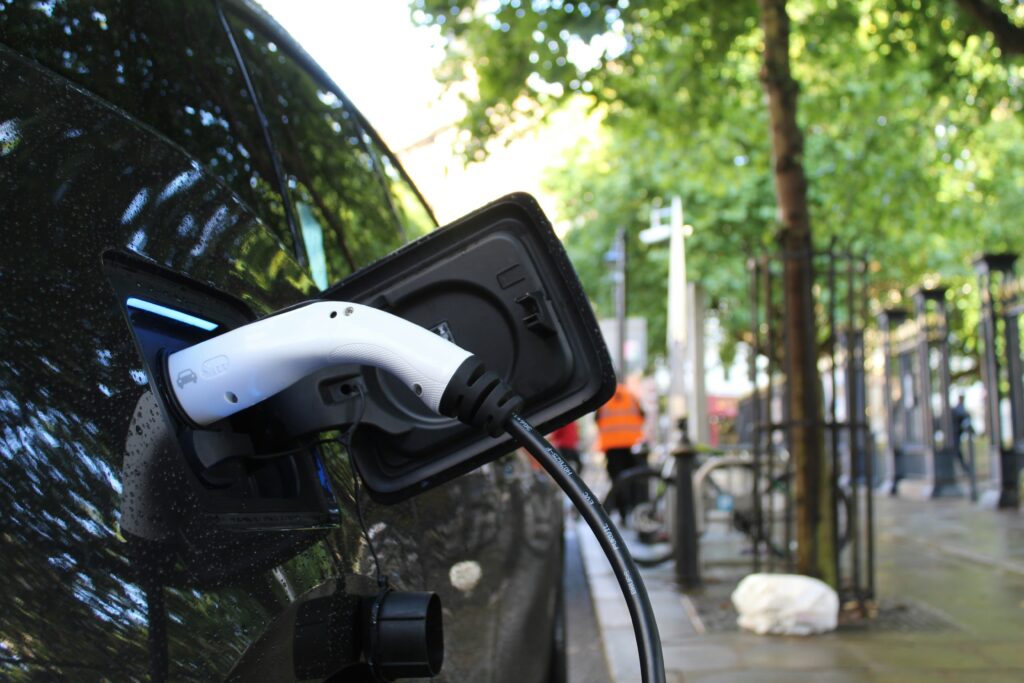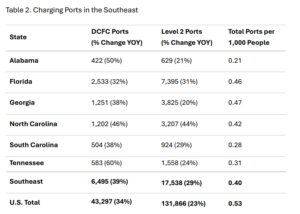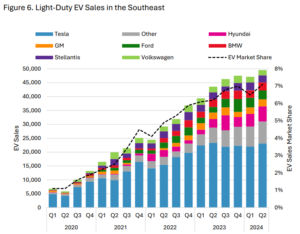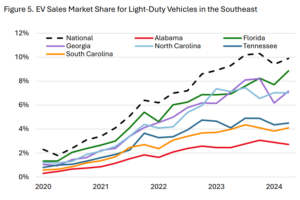
Tennessee has been trailing the national average for electric vehicle purchases and charging infrastructure, but a new report suggests at least part of that could soon change.
The state now has more than 2,000 public charging ports, according to a recent report by the Southern Alliance for Clean Energy.
 Courtesy Southern Alliance for Clean Energy
Courtesy Southern Alliance for Clean Energy Tennessee had the largest one-year growth in fast chargers but trails the regional and national averages.
There are two types of chargers: fast chargers, which can charge EVs by 80% in 20 minutes to an hour and support long-distance travel, and “level 2” chargers, which are designed for homes, workplaces and businesses. Tennessee has nearly 600 fast chargers and about 1,500 level 2 charges.
The state had a 60% increase in fast charger additions during the one-year period ending in June compared to the previous year, according to the report.
“With that kind of growth, we’re likely to see that momentum begin,” Stan Cross, director of electric transportation for the Southern Alliance for Clean Energy, told WPLN News.
But Tennessee is still tracking behind other states in the Southeast.
 Courtesy Southern Alliance for Clean Energy
Courtesy Southern Alliance for Clean Energy Tesla remains the most popular electric vehicle maker in the Southeast.
The vast majority of EV charging happens at home. But public chargers are key for efficient traveling and public perception — as the infrastructure becomes more visible, people may feel more comfortable switching to EVs.
“EV adoption has been expanding exponentially, and EV charging has not been keeping up,” Cross said. “We need increased investment.”
Annual EV sales increased locally and regionally. Tennessee residents bought about 43,000 EVs in the one-year period ending in June. In the Southeast region consisting of Alabama, Florida, Georgia, North Carolina, South Carolina and Tennessee, EV sales grew by 42% compared to the previous year analyzed, from about 455,000 to 645,000 cars.
 Courtesy Southern Alliance for Clean Energy
Courtesy Southern Alliance for Clean Energy Electric vehicles represented 4.5% of car sales in Tennessee during the one-year period ending in June 2024.
Tennessee possesses a large stake in EV manufacturing. The state has attracted more than $15 billion in investment for EV-related manufacturing projects since 2019.

